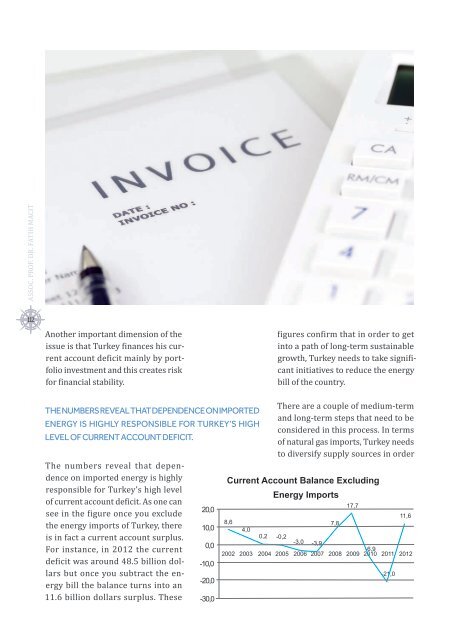Caspian Report - Issue 06 - Winter 2014
Create successful ePaper yourself
Turn your PDF publications into a flip-book with our unique Google optimized e-Paper software.
ASSOC. PROF. DR. FATIH MACIT<br />
112<br />
Another important dimension of the<br />
issue is that Turkey finances his current<br />
account deficit mainly by portfolio<br />
investment and this creates risk<br />
for financial stability.<br />
THE NUMBERS REVEAL THAT DEPENDENCE ON IMPORTED<br />
ENERGY IS HIGHLY RESPONSIBLE FOR TURKEY’S HIGH<br />
LEVEL OF CURRENT ACCOUNT DEFICIT.<br />
The numbers reveal that dependence<br />
on imported energy is highly<br />
responsible for Turkey’s high level<br />
of current account deficit. As one can<br />
see in the figure once you exclude<br />
the energy imports of Turkey, there<br />
is in fact a current account surplus.<br />
For instance, in 2012 the current<br />
deficit was around 48.5 billion dollars<br />
but once you subtract the energy<br />
bill the balance turns into an<br />
11.6 billion dollars surplus. These<br />
figures confirm that in order to get<br />
into a path of long-term sustainable<br />
growth, Turkey needs to take significant<br />
initiatives to reduce the energy<br />
bill of the country.<br />
There are a couple of medium-term<br />
and long-term steps that need to be<br />
considered in this process. In terms<br />
of natural gas imports, Turkey needs<br />
to diversify supply sources in order










